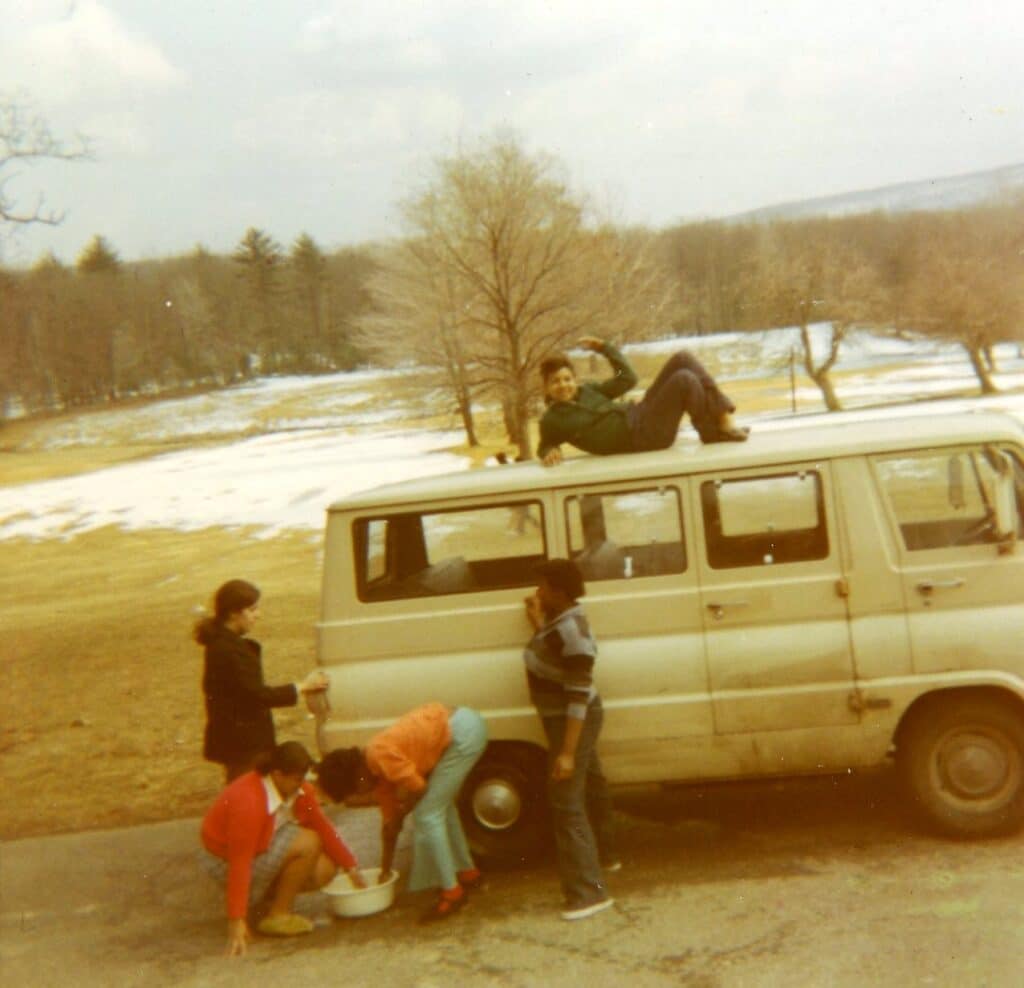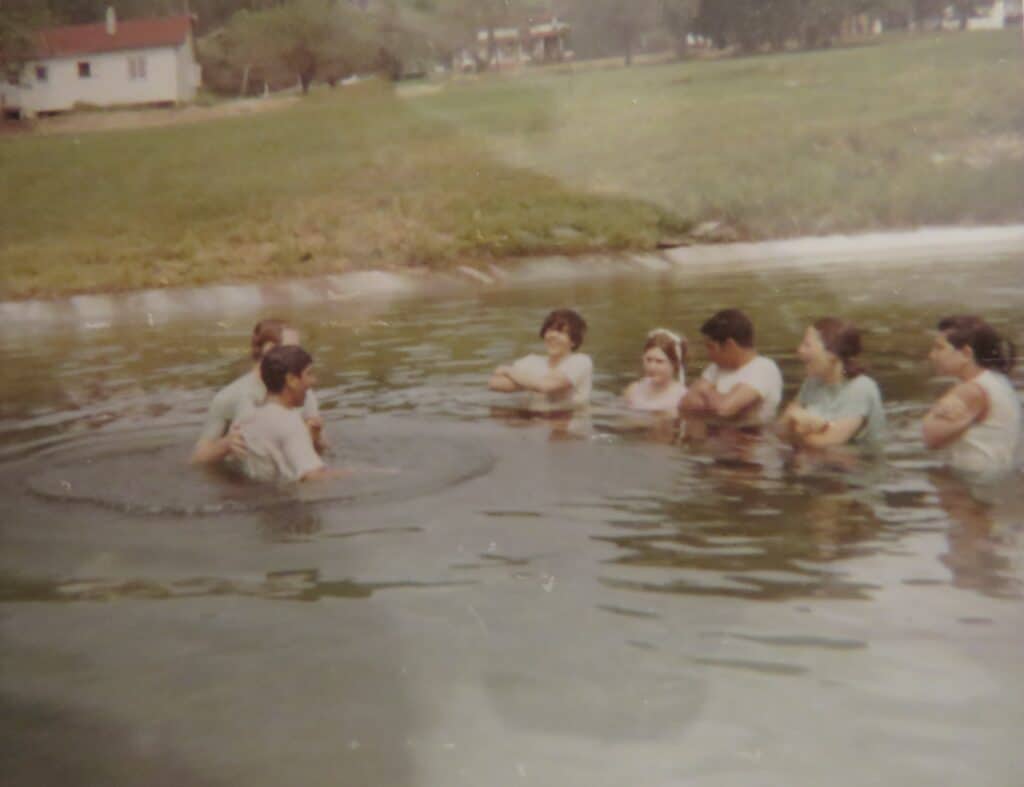God’s Presence in Nature
My first memory is of going to Camp Deerpark (at that time it was Brandt’s Pleasant View) in Glenn Zeager’s Packard in the evening after a day of work. I traveled with Dale Stoltzfus and, I believe, John Buckwalter. I remember a neighbor coming to investigate who the intruders were at this time of night. I think the trip was mostly about introducing me and others to the idea of owning a camp to provide more sustainability for our children’s camping programs.
Everyone in the car was excited about the potential of owning this property for a camp. To be clear, my excitement was somewhat limited since I had never had camping experiences as a child or youth. But as pastor of Glad Tidings Mennonite Church in the South Bronx, where we had a very active children’s program, the idea of having a camp produced an image of a place to send children away from the streets during the summer. This idea was exciting to me. I thought it could provide a broader experience of life and God’s activity in all of nature.
My first impression of camp was that it could really become a great place for our city youth, but it would take a lot of work and money to achieve this. Of course, we did manage to purchase the property in May of 1969.
My summer focus in 1969 was to organize the several ways to get over 300 children off the streets and into camping programs: Fresh Air Fund, Camp Hebron and now, Camp Deerpark. So for me, not having camping experience to draw on, I could only imagine the value for the kids—a value that I came to appreciate more and more from the reports from campers over the years.
I was also excited about providing our congregation at Glad Tidings with a retreat experience at this new camp. And we succeeded at having our first annual retreat at Camp Deerpark on July19 and 20, 1969. A memory that has stayed with me is of everyone’s reaction to the greenspace. It was both exciting and a little scary. The young kids would just run around in the grass. This was the first of many Camp Deerpark retreats for Glad Tidings. One of our largest was when we had 109 people attend our retreat in 1977. We had a big fish fry on Saturday evening. Obviously, there were not beds for all and some attended only for Saturday. These were joyful and exciting times for the congregation.
I usually scheduled baptisms each summer during the church retreat in what would now be referred to as the “old pool.” This was an exciting part of the retreat, even with the water sometimes being very cold. In our situation in the inner city, where resources were at a minimum, camp strengthened the spiritual experience of church members. It provided an opportunity to help people see a world outside of New York City and expand their experience of God in nature. It opened up their awareness of country and space.
One summer I developed a curriculum around “God’s presence in nature” for summer camp. I enjoyed speaking to the children at their camp-fire meetings at night on this topic. Over the years I gained an appreciation for the value of a camp experience for many kids for whom it was their only time spent outside of the city.
For me, personally, camp was also an outlet from the stress of city life. It provided me the opportunity to work with soil and rocks and trees and building things—sort of a return to the ground, trees, weeds and grass of my roots on a farm in Alabama.
I know Camp Deerpark was central to the development of many kids in positive ways. There was an effort to develop programs to foster leadership among the youth. Some kids came from rough backgrounds, but went on to become leaders in their communities. Some went on to be leaders in their career worlds. Some went on to be leaders in the church. Many of the youth were ready to go to camp at every opportunity, even for work projects. And strangely, that was another growth opportunity that Camp Deerpark gave some of the youth—learning some skills of labor like mowing grass and carpentry.
The specialness of Camp Deerpark is found in its vision of helping the children of New York City, especially from the disadvantaged population. I don’t know enough about other camps to compare, but I imagine the vision and mission to focus on programs for children from the Mennonite churches in the inner city is a unique camping mission and challenge.
Camp Deerpark is also special in that there is an effort to be attuned to the different cultures that attend. Camp has worked at providing programs for cross-cultural experiences; the director intentionally structures the staff when possible to reflect the different nationalities and races of those who attend camp. And there is often an ongoing mixture of cultures at camp, as work groups from distant churches—often from Pennsylvania—work on weekends when church retreats with city congregations are taking place.
Camp Deerpark continues to be a part of our life to this day, not doing work projects so much, but leading some retreats for pastors and families. Martine and I still contribute annually to Camp Deerpark and care deeply about its mission and ministry. We are also excited to see the growth and development of camp, especially in recent times with the leadership of Ken and Deborah Bontrager.
—Written by Donna Stoltzfus, former camper and staff.
Eugene Shelly, a camp pastor, served as minister of Glad Tidings Mennonite Church in the Bronx from 1967–1978.
Related Entries
Share:
Sorry, we couldn't find any posts. Please try a different search.


